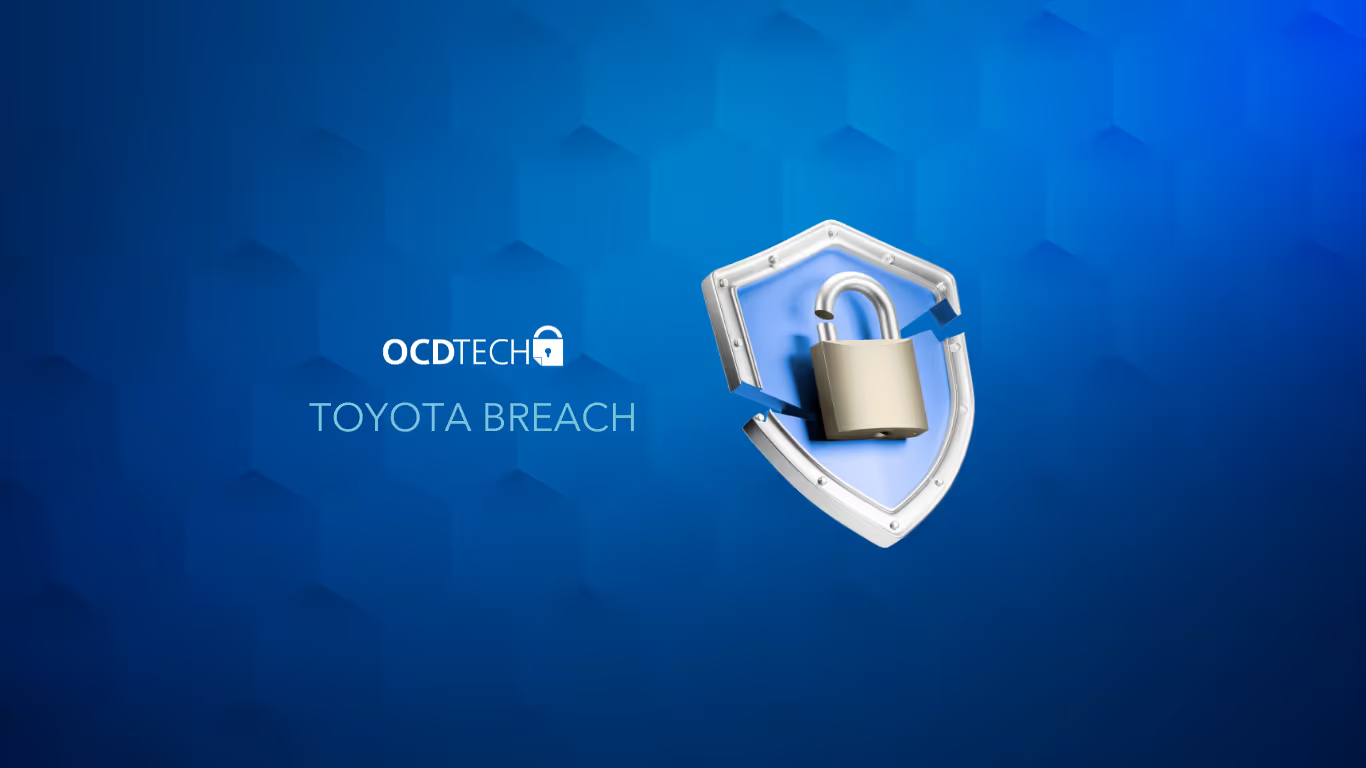By
Robbie Harriman
November 21, 2023
•
8
min read

Working in #cybersecurity and especially in a #vCISO role certainly has its moments of premonition. We watch breach trends and do our best to prepare those we protect. It never feels good when these "told ya so" moments happen, but it does highlight the importance of the work we do.
Last month, I gave a presentation at the Massachusetts State Auto Dealers Association annual meeting, titled "Dealership Security: State of the Industry from a Cybersecurity Perspective." In this presentation, I warned auto dealers of the likelihood of increased attacks within their industry, especially after the enhanced FTC Safeguards Rule and fines/penalties they are now subject to. In fact, a Midwest auto dealer was hit with a ransomware attack just days after the final amended FTC Safeguards Rule Deadline.
I had a slide that highlighted two concerning headlines from earlier this year:
"Auto dealers are prime targets for hackers, warn researchers"
and
"Toyota supplier portal breached by white hat hacker"
It's a lethal combination to have a vulnerable industry, which hackers have identified as ripe for the picking. My exact words during my presentation were: "Toyota was lucky it was a good guy that found it this time."
Late last week, this headline hit the news: "Toyota confirms breach after Medusa ransomware threatens to leak data."
A ransomware attack to the tune of $8m, with the clock expiring this weekend at the threat of releasing a large amount of sensitive consumer and internal data. But, at least the attack group was "nice" enough to include an option to extend the deadline... At "only" $10,000/day...
As those in cybersecurity know, attackers will leverage regulatory compliance as motivating factor for their victims to pay a ransom, as they know data breaches may result in fines/penalties. This effect is insult on top of the injury of downtime, resulting loss of revenue, damage to reputation, cost of credit monitoring services for victims of a breach, and countless other impacts - some directly financial and some intangible.
These attackers know the stakes are higher now for the auto industry, especially with the latest amendment to the FTC Safeguards last month to include reporting requirements. The numbers the attackers chose for the ransom, time period, and extension option are likely not arbitrary, but carefully calculated to maximize inflicted damage and increase likelihood of payout. They do their research, know their targets, and are prepared.
Some hard-hitting industry-specific statistics here:
and of those dealerships that experienced a cyberattack:
*But - there is hope! Let’s move into the solution here:
If you haven’t taken these steps towards compliance and improving overall security, now is the time to start. OCD Tech has spent the past 10+ years helping auto dealers to be more secure, through the processes mentioned above, even prior to the amendments to the FTC Safeguards Rule. These attacks are not likely to decrease until we change attackers’ opinion of the industry. It’s imperative that dealers work with a partner to implement these security best practices above, to best protect themselves against these ever-increasing, ever-evolving threats.
Sources:
https://www.scmagazine.com/news/auto-dealers-are-prime-targets-for-hackers-warn-researchers
https://www.autonews.com/mobility-report/how-toyotas-supplier-portal-got-hacked

Audit. Security. Assurance.
IT Audit | Cybersecurity | IT Assurance | IT Security Consultants – OCD Tech is a technology consulting firm serving the IT security and consulting needs of businesses in Boston (MA), Braintree (MA) and across New England. We primarily serve Fortune 500 companies including auto dealers, financial institutions, higher education, government contractors, and not-for-profit organizations with SOC 2 reporting, CMMC readiness, IT Security Audits, Penetration Testing and Vulnerability Assessments. We also provide dark web monitoring, DFARS compliance, and IT general controls review.
Contact Info
.svg)
OCD Tech
.svg)
25 BHOP, Suite 407, Braintree MA, 02184
.svg)
844-623-8324
.svg)
https://ocd-tech.com
Follow Us
Videos
Check Out the Latest Videos From OCD Tech!
Services
SOC Reporting Services
– SOC 2 ® Readiness Assessment
– SOC 2 ®
– SOC 3 ®
– SOC for Cybersecurity ®
IT Advisory Services
– IT Vulnerability Assessment
– Penetration Testing
– Privileged Access Management
– Social Engineering
– WISP
– General IT Controls Review
IT Government Compliance Services
– CMMC
– DFARS Compliance
– FTC Safeguards vCISO